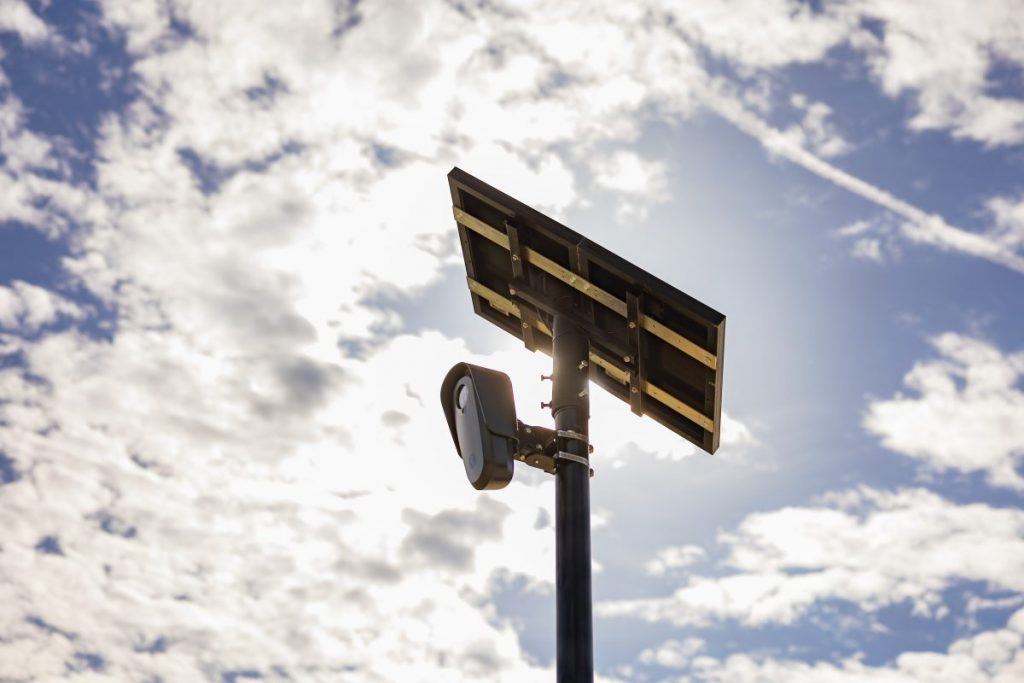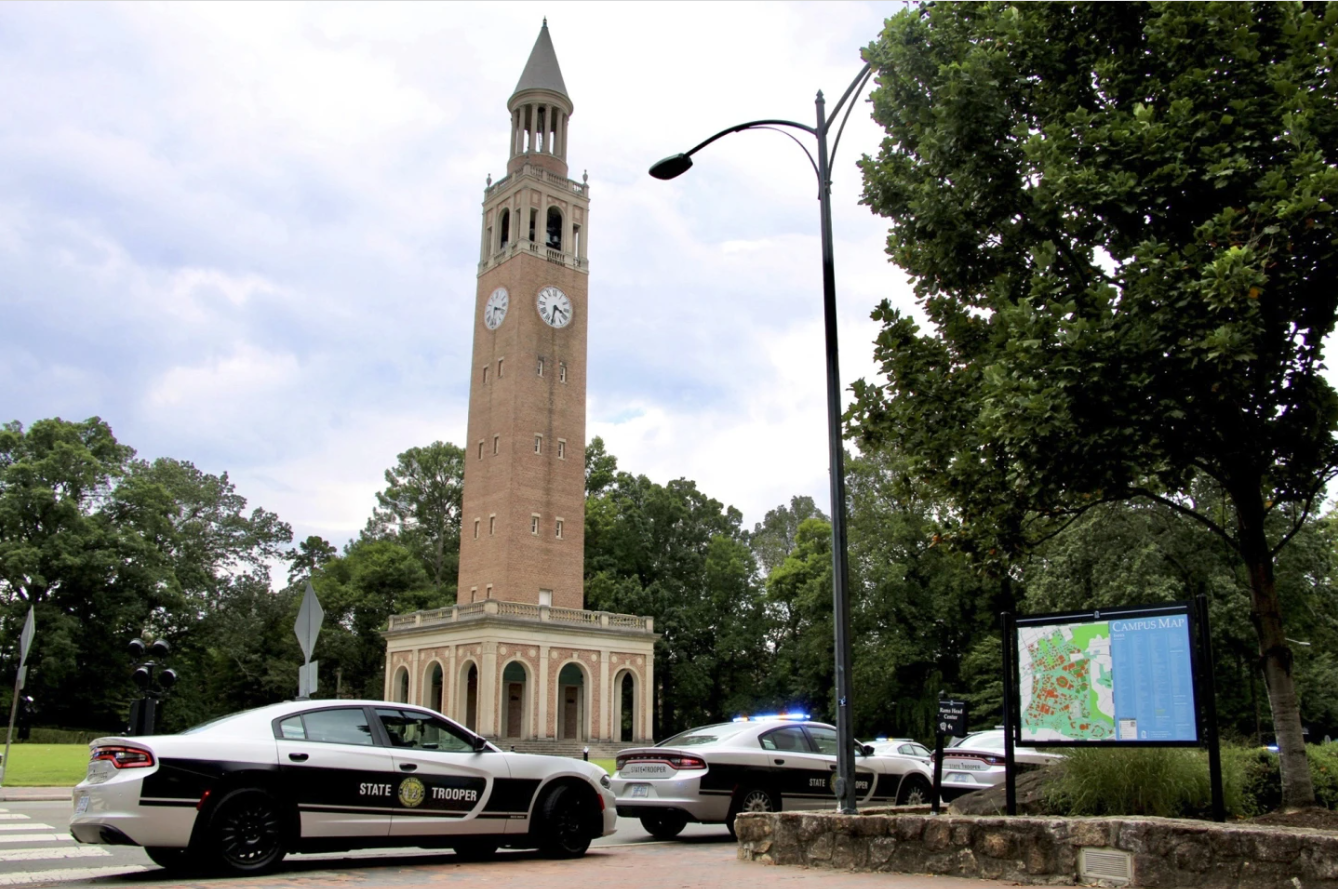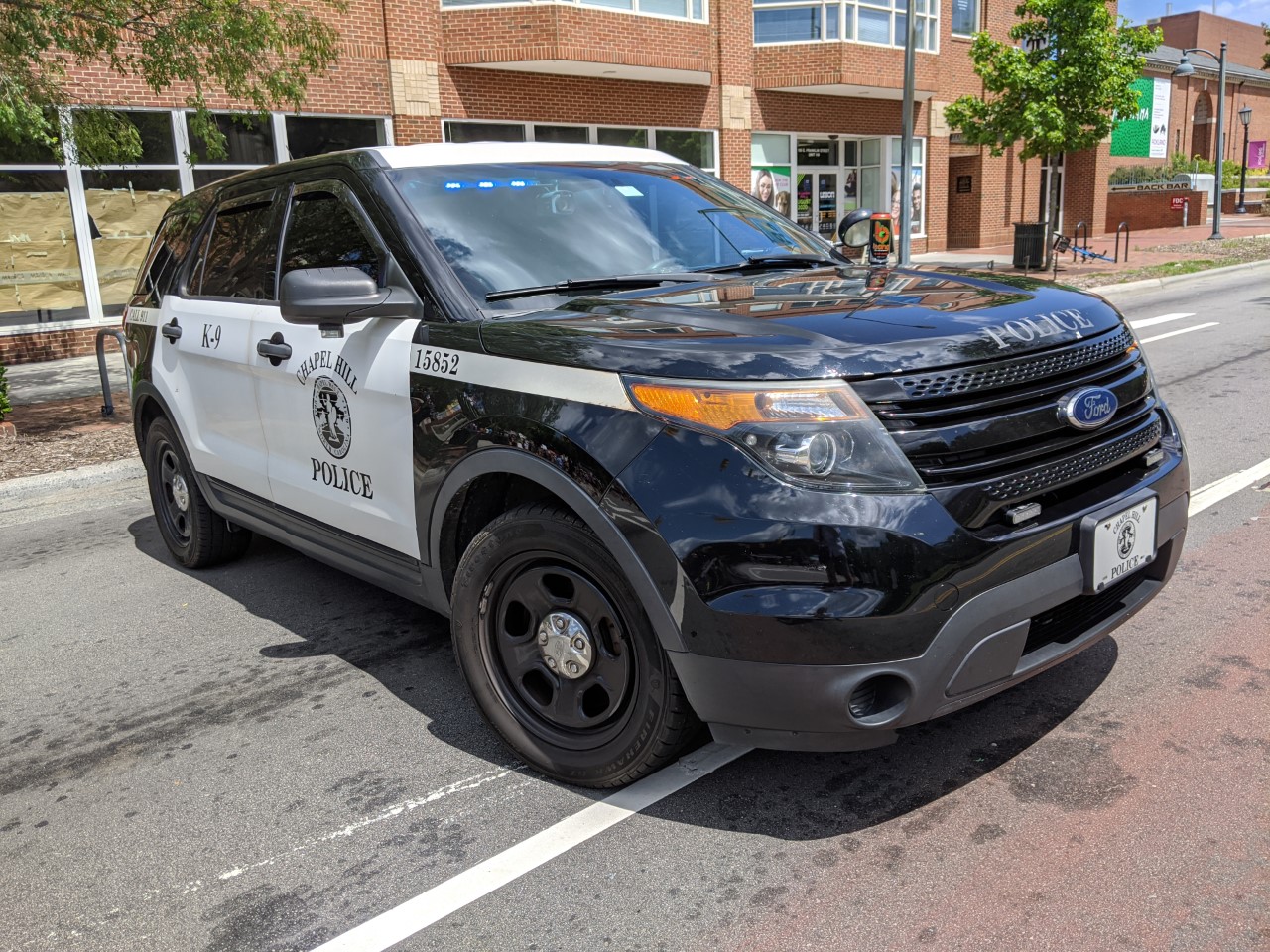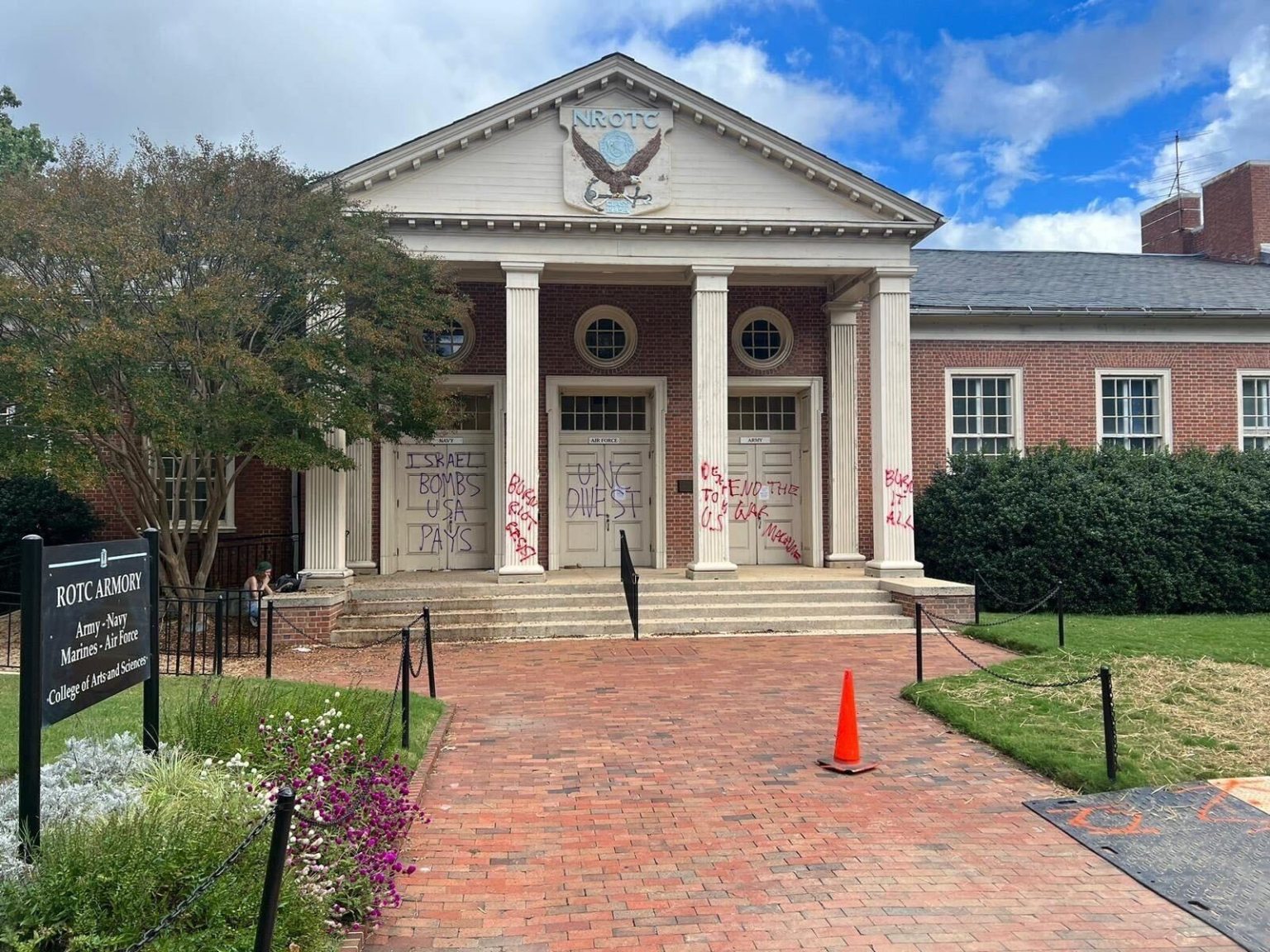This story was originally aired by Carolina Connection, the UNC student radio newscast from the Hussman School of Journalism and Media, on April 6, 2024. 97.9 The Hill and Chapelboro.com airs Carolina Connection on Saturday mornings, and partners with student reporting to publish select stories.
Written by TAYLOR HOLBROOKS
UNC-Chapel Hill is rethinking campus security after the fatal shooting of Professor Zijie Yan last semester. The university has announced plans to install license plate readers on campus. The university recently entered a new contract with Flock Safety, a private company, to install 23 license plate reader cameras around campus.
Even before the August 28th shooting, UNC had been negotiating to order license plate readers from Flock Safety, a private technology provider based in Atlanta, but the deal was not finalized. Now, UNC has contracted with the company to install 23 license plate reader cameras around campus.
UNC Interim Chancellor Lee Roberts says the cameras are part of a campus wide safety evaluation.
“We’ve talked a lot about license plate readers and the ability for it to use technology to determine who’s driving on and off of our campus,” Roberts recently said. “That’s technology that’s in place in several other schools in the UNC system. And I think that would be well-advised to implement here.”
UNC Media Relations has stated that for safety reasons they will not reveal where the camera’s are going to be installed, but when the cameras are placed around campus, they will capture license plates, vehicle details, and even bumper stickers. This data is stored and accessible to law enforcement for 30 days before being hard deleted.
Holly Beilin is the Director of Communications at Flock Safety and a Tar Heel alumna. She says that UNC’s decision to install LPR technology will be a step in the right direction to make campus as secure as it can be.
“License plate readers are not the be-all, end-all solution to gun violence,” Beilin says. “And nobody is saying that they are. They’re one piece of a comprehensive crime prevention and public safety package that flock safety can offer to universities or the universities.”

An example of a Flock Safety license plate reader cameras mounted on a pole. Twenty-three such cameras are expected to be installed around UNC’s campus. (Photo via Flock Safety.)
But civil liberties advocates and others say the cameras infringe on people’s rights — and they question whether the devices really can prevent crime.
Chad Marlow is a senior policy counsel at the ACLU. He says Flock’s surveillance measures on campus threaten the privacy and security of students and other people on campus, by watching their day-to-day lives.
“Those license plate readers are not only identifying and tracking cars, they’re identifying and tracking students,” he says. “If they’re putting them all over your campus, they can actually track where you’re driving. Not just that you were in one spot, but that, you know, you went from this place, to that place, to that place.”
UNC’s decision to implement license plate reading technology opened up questions about how effective Flock Safety’s system will be. Marlow says that implementing LPR technology will not prevent gun related violence.
“They’ve committed to bringing surveillance to your campus to address a problem that that surveillance is not capable of addressing,” he adds, “and in so doing has actually brought an increased level of danger to people on campus by the surveillance they’re choosing to use through Flock.”
The danger Marlow is talking about is UNC’s campus losing its right to privacy. Lauren Sarkesian is an expert in electronic surveillance and tech privacy issues. She says that in order for UNC to implement this Flock Safety system, law enforcement has to establish adequate privacy safeguards.
“Data can be used to paint like a pretty, you know, intimate picture of a driver’s life,” says Sarkesien. “Since it’s tracking location and activity over time, that technology can reveal who visits sort of sensitive places — like women’s health clinics, immigration clinics, or certain places of worship.”
UNC’s campus overlaps with some of the busiest parts of the Town of Chapel Hill, meaning that Flock’s LPR technology not only impacts people on campus, but also residents and visitors of the town. So is the possibility of stopping crime worth sacrificing the privacy of the community?
“License plate readers can serve a really legitimate law enforcement purpose and can be useful tools,” says Sarkesien, “but they should be used in a tailored fashion and with privacy safeguards in place.”
Beilin says that the safety and security of individuals on and around campus is the highest priority for Flock to uphold.
“I think it’s a really important concern,” she says. “You just think about, ‘Well, what’s our data being used for and where’s it going?’ The answer is pretty categorically: no, nothing and nowhere.
“UNC-Chapel Hill has a policy where that’s pretty strongly emphasized,” Beilin adds, “that this data is only for solving crime. If someone that should not be on campus is entering campus, or is around campus, or if a crime does occur… they can use it for investigative purposes.”
UNC Media Relations stated that the license plate readers are scheduled to be installed by the beginning of the fall 2024 semester. The readers and installation will cost $83,950. The university will also pay an annual fee of $69,000 in each of the next two years.
Featured photo via UNC-Chapel Hill.
Chapelboro.com does not charge subscription fees, and you can directly support our efforts in local journalism here. Want more of what you see on Chapelboro? Let us bring free local news and community information to you by signing up for our newsletter.












